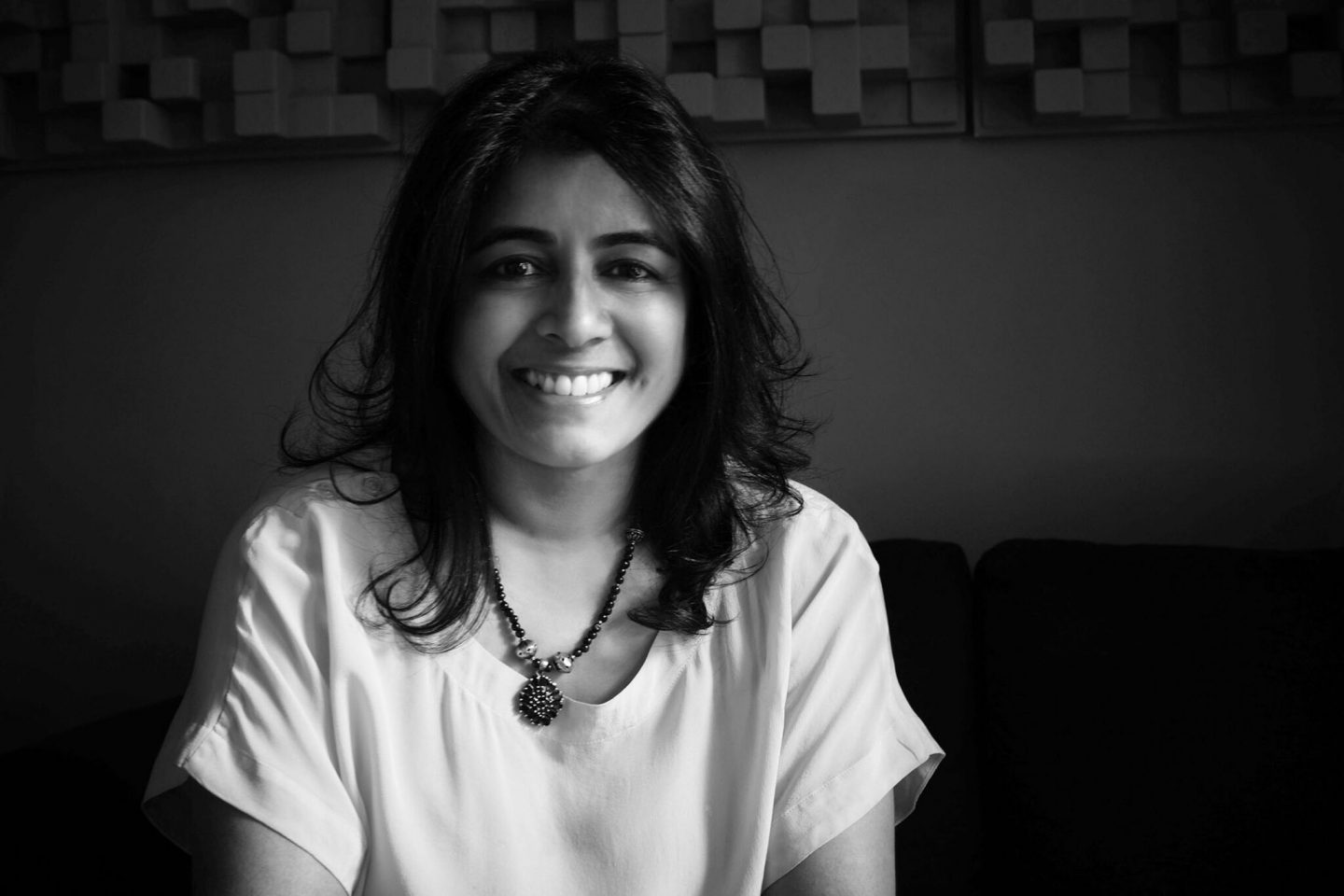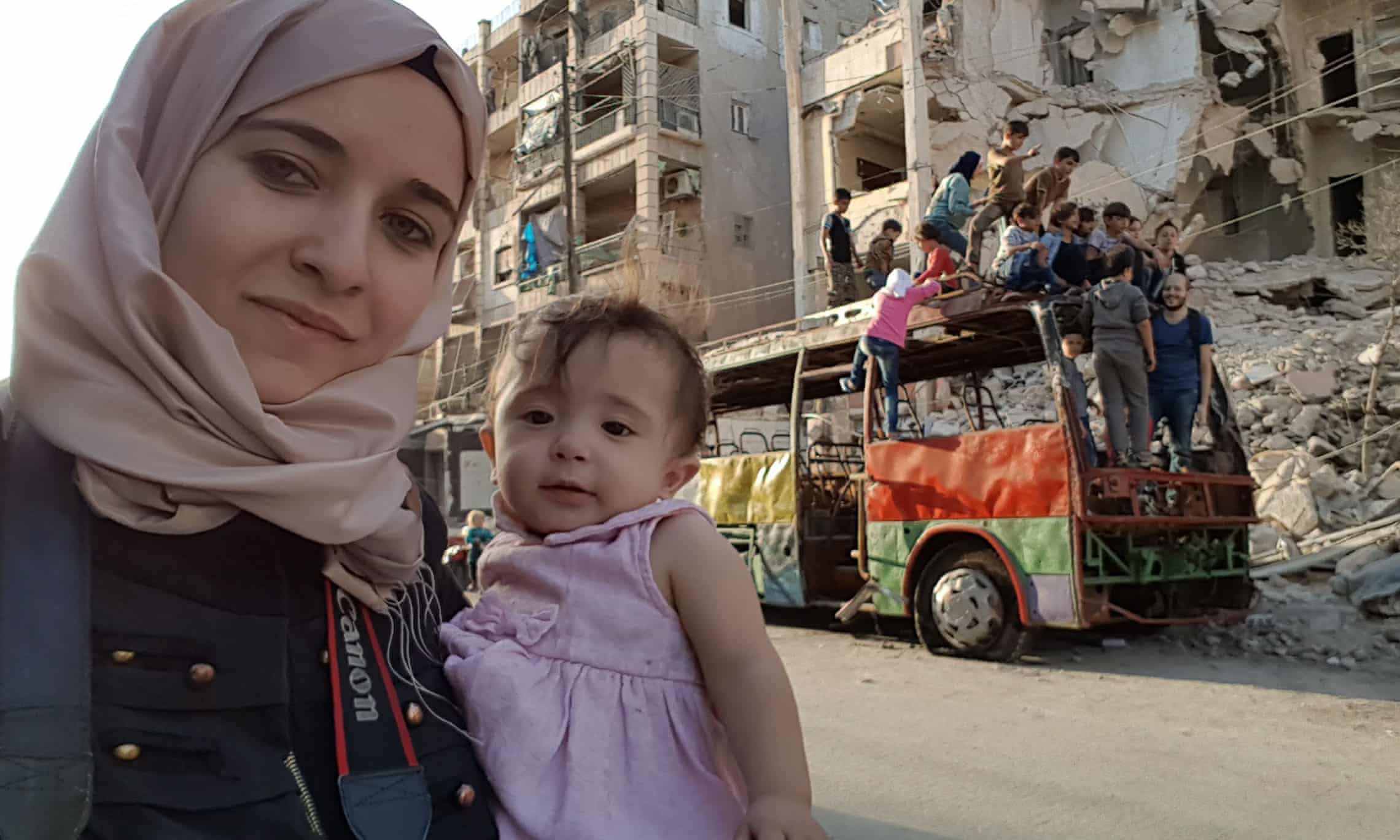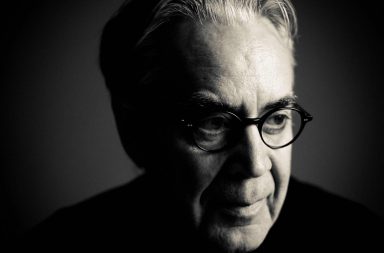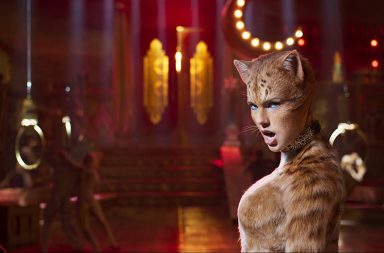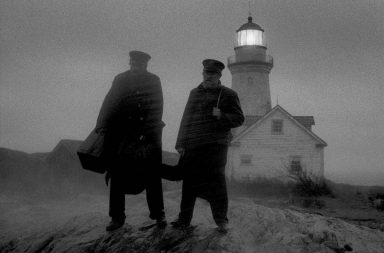One thing is clear when you speak to British composer Nainita Desai: her passion and devotion to film scoring is highly infectious. The lady does love cinema and TV and she’s willing to take you through the nooks and crannies of her art. Nainita’s musical background is rooted in sound design and world music, and she forged her reputation working with filmmakers such as Bernardo Bertolucci and Werner Herzog, and also working as Peter Gabriel’s assistant music engineer.
Over the years, Desai has been nominated for and received numerous awards which have led her to become the leading female documentary composer in the UK. Her music spans over an impressive range of media and genres, from TV movies—in the likes of Maxwell (2007, BBC) or Mumbai High: The Musical (2015, BBC)—to documentaries and video-games, such as those we talked about during this interview.
2019 is reflective of the composer’s versatility and productivity as she has had no less than 8 projects, among which Enemy Within (Gabriel Robertson) a WWII thriller, Darkness Visible (Neil Biswas), a supernatural art house horror film, Telling Lies (Sam Barlow, Annapurna) an interactive movie/video-game, and two documentaries, Untamed Romania (Tom Barton-Humphreys) or For Sama (Waad Al-Kateab, Edward Watts), this year’s Œil d’Or Documentary Award winner at Cannes Film Festival.
During our chat with Nainita, we focused on 3 of her scores. We started with the one she wrote for For Sama which tells the story of journalist/filmmaker Waad Al-Kateab over the course of 4 years in civil war-ridden Aleppo. We then moved on Telling Lies, a live action narrative game and political thriller with live actors and no CGI, and we finished with Untamed Romania, a documentary that features a stunning score, recorded with the BBC National Orchestra of Wales.
Nainita Desai is a perfectionist even if she is a little bit reluctant to using this term. She’d rather say: “I like to explore every avenue, every option, if I have the time and the budget. Normally I don’t (laughs).” Her music is her narrative voice so it evolves at the same time as the individual in the making that she is. She worked on For Sama and Telling Lies for several months, jumping from one to the other, and also writing music for other projects at the same time: “What I did then was not the right approach, now I’m more mature or evolved in a certain way, and I might see the film or scene from a different perspective.”
We had the opportunity to talk about the different challenges she faced during the making of these scores, the choice of the instruments/musicians she picked to do justice to the stories and talked about the role of melodies in today’s film music industry.
Score It Magazine: How did your first meeting with For Sama directors Waad Al-Kateab and Edward Watts go?
Nainita Desai: In terms of how I came on to the project, I was actually recommended by a sound editor friend of mine who was working on the film. Ed was handling the offline edit of the whole project—obviously with Waad, but he was taking the lead on that aspect—and he was looking for a composer. He sent me some early rough scenes to watch and I was completely blown away by it, I couldn’t believe the power of what I was seeing even at that early stage. So he said, ‘Let’s have a meeting. Come meet the editor and myself and we’ll talk about the music.’ Obviously, Waad is an incredibly brave woman for doing what she did, filming over five years and documenting everything that was going on around her. I thought she was a phenomenal person. When I went there, I wasn’t expecting to meet Waad in person as well, but she was there in the edit , sitting on the floor, cracking jokes… I thought she was a phenomenal person and I didn’t expect to see her! That was quite a surprise to me, and I was very humbled to meet her.
Did Ed and Waad give you specific directions regarding the music?
She had strong views on the music but on a day to day basis I worked closely with Ed: we would have rough viewings of the film and send her the film along with the music where she would give her input. That was very unusual for me: I’ve scored hundreds of films but I’ve never worked on a film as unique as this one, where the person in the film is actually there. And because this is such a personal film for Waad—I mean, it is her life story —I felt this weight of responsibility on my shoulders to do the film justice and to be true to the story and her life.
It took a long time to find the musical and the narrative voice of the whole film, so we were all on this journey together. Out of the 500 hours of footage, you could actually craft 500 different films ! I actually wrote three scores for the film over the course of eighteen months. Initially this was going to be a one-hour documentary for TV. The original brief Ed gave me was to write a big, cinematic score. He gave me a lot of temp music, ideas and inspirations. The music needed to be rich and Hollywood-esque, and we thought, ‘Okay, everyone is liking the music, this is the way to go,’ in terms of the film’s storytelling direction and, well… There’s no right or wrong, but in this case, it was the wrong direction (laughs), because after twelve weeks we stopped and paused, had viewings with execs, and… It was a good film but it wasn’t working. All the elements were there, the scenes were there, but the film was lacking that ‘special magic’. And I think I must have written like eighty themes that didn’t end up being used in the film.
For Sama is deeply personal: it’s a love letter from a mother to a daughter, it’s a love letter to a city, it’s a testimony of the resilience, strength and courage of a people. But it also tackles broader themes such as motherly love, death, patriotism, freedom, kindness, hope. I had the feeling that your music was this universal voice.
You know, on the one hand, the function of the music was to capture the angst, fear, tragedy and hope that you’re seeing on film, but on the other hand, when we watched the film, we realised that we had to strip things back. They then made a decision after five or six months of editing that the true voice of the film is the relationship between a mother and her child. And when that happened, all the pieces of the jigsaw puzzle came together. This had to be a love letter to Sama. This is the spinal cord of the whole film: why she made those decisions. She explains to Sama why she decided to stay and why, eventually, they had to leave Aleppo. So, musically, I had to bring out that intimacy. That relationship between mother and child helps us understand what being human is under extreme situations, and I had to find the tenderness within the horror of what was happening.
During the second pass of the score I gave the directors a lot of stems and restarted stripping things back, so the music supports the film in a very minimal, poignant and subtle way. It feels more a part of the landscape. There’s a moment, when they’re driving in the car, and you hear just the drum, like a heartbeat. In the first version of the score, this scene featured a very action-driven piece of music that was big and rich, but when we stripped all the elements out and were just left with the simple ‘booms,’ we thought that it felt actually like it was part of the story, like it was part of the bombs echoing in the background.
The music is sparsely used in the film, and I think I heard quite a limited number of instruments: there’s a cello, a violin, a piano and an acoustic guitar. How did you choose those instruments?
The absence of music is just as important as the actual music. In fact, for me, silence is music. When she’s giving birth to Sama, Waad’s two friends are waiting outside the hospital room, you hear the sound of the baby crying and everybody is cheering outside: there’s a very subtle piano piece that comes in. And when you have something like that coming in at that moment, you’re allowing emotions to come through in a more powerful but subtle way. For this scene, we went through a lot of trial and error, thinking about whether to have the music or not to have the music. The third time I scored it, last Christmas, Ed came to my studio and we had a good strong dialogue (laughs), about the function of the music for scenes. For example, at the very beginning of the film, everything is perfectly normal in Waad’s life: you see photographs of her, she’s a student at the university, she has the rest of her life ahead of her, she’s happy, she has all these dreams and hopes and there is no sign of the uprising. So I wanted to write a more positive theme, but in the end it felt out of context with the film. We went for something more plaintive and emotive.
Waad, who has very specific views on the music, didn’t want the score to be over-manipulative and too emotional. And my job was to get into Waad’s mind. So I brought in a Syrian violinist, who’s actually a refugee living in Italy, and I got him to play on the score because it was very important for me to be authentic and true to the location. His playing had a rawness and edge that represented the aching heart of Aleppo. I could have brought in a Western-trained classical violinist, but it wouldn’t have been the same. In the scene where the students are protesting, for example, I originally had a very strong orchestral-based piece, and we stripped all the elements away and just left the Syrian violin in the piece. For Waad, it was perfect to capture that raw dynamic edge in the scene. She said, ‘This is our journey, this is our lives.’ What we tried to do here with the music was trying to be truthful to Waad when they crafted this film.
The end piece was also interesting to write because Waad has this traditional Syrian folk song that she had always been singing as a child as it had a lot of resonance for her, and she said, ‘I would love to have a version of this for the film.’ So I did an arrangement of it where I brought in an oud player, friend from Amsterdam. My partner who’s a guitarist played the guitar for me, I also brought in a cellist… The piece is about four minutes long, it’s not too rich but it brings some kind of hope at the end of the film. When Waad watched it, she she cried with joy, and not with sadness anymore. It makes me feel incredibly humble and proud.
In an interview, you defined yourself as ‘a storyteller for music,’ and the film, which is entirely made from Waad’s own personal footage, is so personal, but at the same time, it is a message for all the people, not only in Aleppo, but also for those who are struggling under dictatorships all over the world. Your music conveys this feeling of reaching out to more than just what’s in the film.
Yes, absolutely. I mean, when I’m scoring any project, the first thing that I do is to create a unique sound palette and world, but I also inhabit the characters. I get inside the characters’ mind. For Sama is a dark film, but there’s also a lot of laughter with human moments, and that’s the reality of life. if the film had been edited chronologically charting the 5 years, the story would have just got darker and darker.
So they decided to take the approach of a non-linear timeline, because they had to find a way to inject some light moments, like when the children are painting the bus, or when there are the two doctor friends of Waad sitting in the hospital for the first time having fun, but then as a contrast the next shot you see is the first death. They both died, which you see through the CCTV camera. It made one realise that the stories are so strong there was no need to lay strong music in at moments like those.
The reality is, you see this kind of footage on the news all the time. We’re bombarded with it. And the problem is, I hate to say this, but people are suffering from Syria-fatigue. We’re de-sensitised, people are like, ‘Oh, I’ve seen it, I don’t need to see it anymore. I know what life is like in Syria, I know all about refugees.’ Refugees have this bad image now, they’re seen as people who are poor, coming to Western countries, taking everything away from these countries, stripping all the resources and social benefits, they’re homeless, they’re committing crimes… This is the stereotypical image that we have of immigrants, which is very, very wrong and dangerous.
Exactly. They left their country because they had no choice, and that is something that Waad stresses out in the film. It is very important that people understand that.
For Sama has been very successful in the UK, and mostly through word of mouth. I think the reason why this film resonates with people on such an emotional level is because WE could be Waad, WE could be Hamza: middle-class people who are architects and surgeons and doctors and lawyers, who’ve been forced out of their country because of what happened. It makes you think, because this could happen to any of us, with the balance of our economies, our lives, our government, what’s happening with Brexit… People can relate to this film, to these ordinary people’s lives, they’re not just statistics, for once. This film is different from a news report in that because of the way it’s crafted, you’re taken on this emotional journey, and roller-coaster. The people in the film don’t speak the language of philosophers or politicians, they speak in ‘ordinary language’. Waad also speaks to her daughter, so we can relate to that on a primeval emotional level.
I’m very happy for Waad and Hamza, because they are amazing human beings. When you meet them in reality, they are such humble, lovely people. Hamza is always laughing, he’s just a positive force. For Sama has been a very personal project for me as well: I got to work closely with them and I consider them to be my friends. I hope the film raises awareness of Syria and these regimes, and that something can be done to stop it. In fact they have started an impact campaign around the film which can be followed on social media.
Let’s move on to Telling Lies, now, which deals with completely different subjects. We have this complex video game in which the player has to dig into that huge pile of video clips to solve a mystery. It’s basically like assembling all the pieces of a jigsaw puzzle together, except that you don’t have any image that you can pull and start from. What stroke me with the Telling Lies score is that you preferred using real acoustic instruments over electronic music. Is using an orchestra a better way to bring in more details and to create a purer, more subtle musical language?
Well, you’ve got four main characters. And again, it’s all about getting inside the mind of each character, but different from For Sama, because I didn’t have any visuals to work with at all. So that was a challenge. I had this huge 260-page script to work from, and I had a lot of dialog between Sam Barlow, the developer, and myself. The idea we came up with was to write a theme for each character. As human beings, we’re very multi-facetted, very complex, we have good sides and bad sides to our personalities. And so, how do you sum up someone’s life in one piece of music? The only way I could represent each human being was to use just pure, acoustic, raw and organic sounds. No electronics, no deception in that regard, it was just pure emotion told through pure acoustic sounds. I used the London Contemporary Orchestra because there’s a lot of visceral edginess to their play. There’s a lot of intimacy in the game: when you’re playing it, you’re actually seeing just one side of the 2-way conversation. Someone is talking to someone, but you don’t hear what the other person is saying, so there’s a lot of teasing and mystery. There are Machiavellian plans, and everyone’s lying to everyone. You’re listening to private conversations that you’re not really meant to be listening to. So, with the music, I wanted there to be an intimacy and a detail in the actual playing, where you actually hear the relationship between the musicians and their instruments, where you hear the sound of the bow hitting the strings. It’s not only what they were playing as much as the sound that they were making that was important to me, to help me translate that intimacy between the characters in the game. That’s why I chose the London Contemporary Orchestra, because they have a very distinct sound that I’ve heard in their playing before, and also they’re very creative in their collaborations.
For a storyteller like you, Telling Lies and its new, elaborated form of storytelling must have been excitingly appealing. I believe that during the recording sessions, you let the orchestra improvise from the themes you wrote, and these very improvised pieces are heard in the game. What about these recording sessions? How did they go?
We’ve done very experimental improvisational recordings. Normally, if you do a score, you would do a mock-up and play it to the directors or the team, so they know exactly what they’re going to get. Of course, we did that with Telling Lies, but when we recorded it in London, I added some extra time at the end of the sessions for improvising, because I wanted to inject a sense of chaos. When I’m writing, there is a lot of precision and detail to the score and every note is there for a reason. Everything is very ordered. But here, when we got to the studio and recorded the music, we tried some semi-improvisational techniques, sort of modern classical techniques, which were really exciting and allowed for a bit of random chaos to come into the music as well, so that way, you don’t quite know what to expect sometimes. At times it would work, at times it wouldn’t. You think you’re hearing the same piece, but because the orchestra played it in a slightly different way improvising different takes, we have variations of the themes which make it very subtle and varied. Technically, it was quite challenging. I wrote in a modular way with stems and layers and the challenge was to write musically flowing pieces that were still changing with the gameplay.
Telling Lies has this Soderbergh feel in that the player is drawn into a world that is both familiar and disturbing, like he’s one of the protagonists of Full Frontal or Sex, Lies and Videotape, both films in which music also has a function of emphasizing the truth in a world full of lies. Did you draw any inspiration from these films?
I’m a very visually-inspired person, I love film, I went to the National Film and Television School, and when people ask me, ‘What industry do you work in?,’ I say, ‘I work in the film industry.’ Yes, I work in the music industry, but I always think of myself as a storyteller and, in my own humble way, I’m a filmmaker. In terms of inspiration, I was watching a lot of films, Sam gave me a lot of inspirations, like Steve McQueen’s Shame and Sex, Lies and Videotape. But I also have a fascination and love for films about spying and hacking and political scandals… I loved Francis Ford Coppola’s The Conversation and the Three Colors trilogy, 70s films like Chinatown, All the President’s Men, Klute, those kinds of films were inspirational. I love noir films and their music as well.
We knew that we didn’t want the music to be influenced by any one particular score. We listened to a lot of music, and Sam and I would create endless playlists of music that inspired us. He sent me some of the music he was listening to when he was writing the script, and I would be listening to a lot of different scores and modern classical music as well… And between us, we found music that would enable me to represent each character. Watching those films helped me draw a mental picture of the musical world that I had to represent. I worked with these organic textures, for example, the dark beauty that would suit the overall vibe of the game, and sharing music worked as a great communicator. We found the core of what we wanted to say, emotionally, about the characters.
I believe you have another score coming out…
Yes, it’s called Untamed Romania, it’s a natural history film which was released last year in Romania and it became the most successful non-fiction film in cinemas there. It showcases the biodiversity and the natural history of what is the last bastion of European wilderness, so you’ve got a wide range of topography, from the Carpathian mountains to the forest of Romania, to the Danube river, to the marshes and the plains… The film is also a message to the people about protecting the environment, it’s epic, beautiful, characterful and stunning,
I was approached by the UK based film company, who commissioned me to create a very rich score. One thing that I’ve noticed with filmmakers these days is that they don’t want melodies so much. I think they’re almost afraid of using melodies, they’re afraid of being too emotional. With this film, it was the total opposite, because they said, ‘We want melody and for me, that was like heaven! All the melodies that I had saved up all these years, that I had never used in my scores, I wanted to come out with them on this one. It’s like a throwback to a—slightly—more traditional way of orchestral writing, in the tradition of John Williams or Ennio Morricone. I feel that there’s a hunger for melody right now. I knew that I would have a 75-piece symphony orchestra at my fingertips, which was the BBC National Orchestra of Wales, and it was a real privilege and honour to write for this orchestra.
Should we expect something completely different—again—from Telling Lies and For Sama in terms of writing, arrangements and orchestration?
The film takes place over a year in this region, we go through four seasons and each season has its theme: spring is light and playful, summer is hot, languid and relaxed, autumn is melancholic, sad and beautiful and winter is cold and inhospitable. The other characters in the film are a family of bears, and you see, at the beginning of the year, the bears come out of hibernation. We have these baby bear cues that are very light and mischievous, and we have a theme for the bears with which I take the viewer on this magical journey where the bears grow up, they become young adults and then you see the fully grown bears, when they’re battling with the wild boars and the wolves in the magical forests of Transylvania. The filmmakers said, ‘We want the score to have a magical fairy tale feel.’ In Transylvania, you have the wolves, you have these ancient legends of vampires, and you can hear that fairytale feel in one of the pieces that I wrote, called ‘Legend of the Fire Salamander’.
I wanted to bring out woodwinds, because in a lot of film scores, strings or brass are very commonly used, but you don’t really hear woodwinds these days, and I really wanted to make use of the whole orchestra. So we recorded at the BBC Hoddinott Hall in Cardiff and the modern way of recording scores is that you record all the sections separately: on one session you record the strings on their own, then on another section you do the brass, then the woodwinds… With this, I wanted to record the whole band together in one room, all seventy-three musicians playing together, because unlike normal session musicians, who are used to playing on a lot of different projects all the time, this orchestra plays together all the time. They all know each other and there are good friendships between them. So, when you have them all playing together, they communicate like a living breathing organism. It gives the score a very lively sound. With the sweeping landscapes and the visuals of the film, it’s quite epic, and I wanted the shape of the mountains to influence the film music as well. The opening theme has this very rippling, undulating woodwind and string performance. When you have musicians that are enjoying the music that they’re playing, that really feeds back to the listener, because the listener can pick up that emotion that’s coming out through the music.
You’re a very busy woman. What’s up for you in the future?
I’m working on various TV series at the moment for the BBC and Channel 4 and also on a 15-part series for Quibi [Editor’s note: a new streaming platform made specifically for mobile devices and created by Dreamworks co-founder and former Disney chairman Jeffrey Katzenberg. It is scheduled to launch in April 2020], which will feature high-quality dramas and documentaries. Each film is ten minutes long and I’ll be writing the music for this natural history series. I’m also working on a special feature documentary that’s going to be released early next year. This one’s an experimental film, it’s a blend between music and sound design. it’s built on my background as a sound designer—I started off as a sound designer on feature films, working for Bernardo Bertolucci and Werner Herzog—so I’m combining found sounds with electronics and also raw acoustic instruments to create an immersive experience. It’s called The Reason I Jump and it’s based on the best-selling book that was written about twelve years ago by Naoki Higashida, a Japanese boy who is non-verbal autistic. It’s a very immersive film to try and make the audience understand what it feels like to be autistic and so it’s going to be quite a special release.
Interview prepared, conducted, transcribed and edited by Valentin Maniglia and Marine Wong Kwok Chuen.
